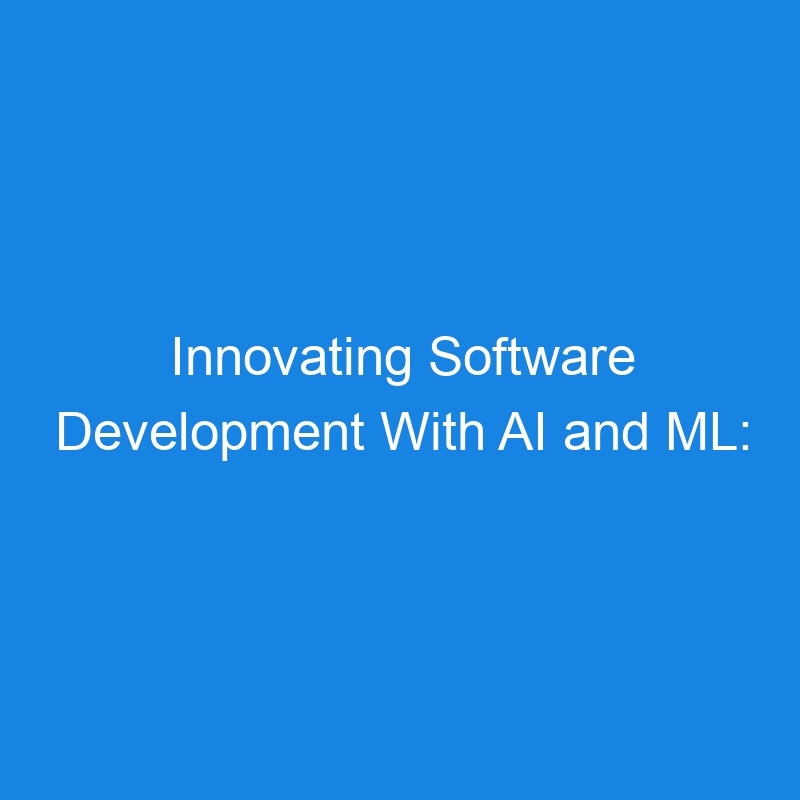
Not long ago, artificial intelligence (AI) and machine learning (ML) were merely experimental fields. Today, they serve as mission-critical tools in software development.
AI and ML continue to transform software design, development and management across every stage of the software development life cycle (SDLC).
Let’s explore how these technologies influence software development and help unlock new benefits while also introducing unique challenges.
Using AI in Software Development
AI is advancing software development by automating tasks like generating, testing and debugging code, freeing developers to focus on more creative work.
Streamlining Code Creation and Testing
Generative AI tools assist developers by generating code snippets, suggesting improvements and even completing functions with minimal input.
This reduces time spent on repetitive coding tasks and further benefits developers with:
- Code assistance: Generative AI tools boost development by completing code and offering smart suggestions. This speeds up workflows, reduces errors and improves efficiency.
- Test automation: AI-powered tools streamline the development process by automating test creation and execution, analyzing code changes and prioritizing tests efficiently. These capabilities ensure software quality while reducing manual effort and accelerating development timelines.
Improving Debugging and Simplifying Maintenance
Machine learning algorithms enhance debugging by identifying patterns in code that are prone to errors, offering analysis to flag potential issues before they occur.
Additional advantages include:
- Predictive debugging: ML algorithms detect error-prone patterns in code, enabling developers to address potential issues proactively.
- Intelligent refactoring: AI tools optimize code structure for better maintainability and efficiency without altering functionality. These advancements simplify the maintenance process and allow developers to focus on building robust and scalable systems.
Integrating ML Models in Software
The integration of ML models into software applications represents another transformative shift. Developers now frequently use pretrained models and open source libraries to incorporate advanced capabilities into their projects.
Benefits include:
- Model accessibility: Platforms like TensorFlow and PyTorch provide prebuilt machine learning models, enabling developers to easily add features like image recognition, natural language processing and predictive analytics without building models from scratch.
- Component reusability: These tools promote a modular approach, where developers leverage existing components to accelerate development cycles.
Continuous Learning and Updates
AI-enabled applications continuously learn from new data, adapting dynamically to user behavior to remain effective and relevant. However, this continuous learning demands robust data pipelines and strict data privacy measures, presenting challenges for developers and organizations alike.
Benefits and Challenges of AI and ML in Software Development
AI and ML are revolutionizing software development by automating repetitive tasks, thereby boosting productivity.
Machine learning improves accuracy by reducing errors in bug detection and testing. AI-powered tools also create personalized, adaptive user experiences, enhancing the user journey.
But adoption of these technologies creates challenges. Ethical concerns, like biases in ML models and AI-driven decisions, must be addressed to ensure fairness. Developers also face a skills gap, needing new expertise to manage AI technologies. Additionally, the computational resources and strong data pipelines required create infrastructure demands that can be a barrier for many organizations.
The Future of AI in Software Development
AI and ML continue to shift software development as we know it. AI can design user interfaces, speed up prototyping with generative tools and improve real-time security. Developers and AI will collaborate more seamlessly, with AI boosting creativity and decision-making.
By automating tasks, improving decision-making and enabling advanced features, these technologies help developers create more efficient and innovative software.
As the field evolves, the collaboration between human creativity and machine intelligence will shape the future of software, driving the next wave of innovation.
The post Innovating Software Development With AI and ML: Pros and Cons appeared first on The New Stack.
